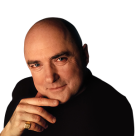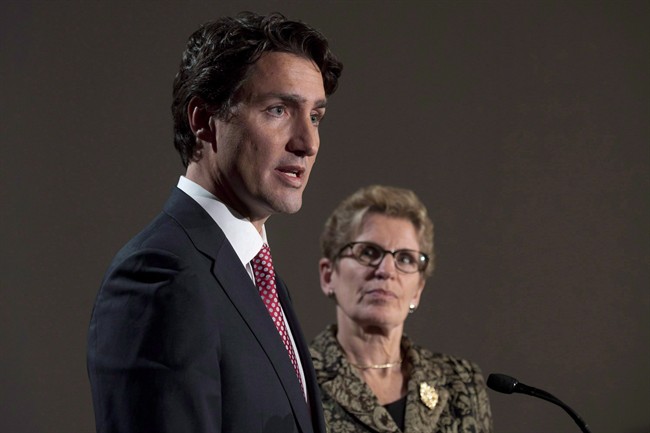The dynamics are interestingly similar. Dynamics continuing to develop form and shape as Canada’s most populous province prepares for its election next summer. Dynamics which substantially may linger and affect the following September’s federal tournament for parliamentary primacy.

In Ontario, an unpopular premier with a record of profligate and indefensible distribution of tax dollars, according to the province’s auditor general, is stumbling rather badly. Kathleen Wynne’s government has, for example, liberally shoveled multiples of millions of dollars to teachers unions requiring zero accountability.
Auditor general Bonnie Lysyk reprimanded Wynne’s stewardship of the province’s finances in her 1,000-plus page 2016 report.
What disturbed the auditor general for its repetitiveness was that contractors hired by Wynne’s government fouled up their assignments (ditto suppliers) and instead of being held accountable and removed from bidding for government contracts were awarded new business.
$8 billion had been spent on eHealth Ontario, fourteen years after the computerized health records initiative saw the light of day. A murky light of day albeit. Lysyk pointed out there is no way to determine whether eHealth is on budget. Why? The government never declared a budget.
Provincial taxpayers are on the hook for $37 billion in Global Adjustment payments following the Ontario Liberals ignoring their own planning process for new power generation projects. Electricity costs on hydro bills for private residences and small business climbed 70 per cent between ’06 and ’14.
Since then, electricity prices have led to crises across the province as consumers became unable to afford turning on the lights and heat. Thousands upon thousands of people. Wynne eventually allowed she had made a “mistake” and corrected the mistake by plunging provincial taxpayers into further massive debt.
Kathleen Wynne has a steep mountain to climb indeed if reelection is truly what she is aiming for.
A less than demanding opposition has though freed the premier to work on her public image. Patrick Brown’s Progressive Conservatives have been so far largely unimpressive, although almost by default leading in the polls.
If the New Democrats under Andrea Horwath have been forgotten by most in the province, it’s because their performance criticizing the government and offering real options has been utterly forgettable.
So here we are, Ontario chugging along as a have not province with massive non-sovereign debt, holding out its hat for transfer payment money from a struggling Alberta, while engaged in a tri-party oil emissions punitive cap-and-trade deal with Quebec and California. Consensus? Quebec and California will win on this deal. Ontario? Perhaps not so much.
Could Wynne win next year? Never say never in a climate where an old-fashioned bare knuckles fight for political survival and voter support seems as unwelcome as the proverbial skunk at the garden party.
How does Ontario ’18 impact on Canada ’19?
The prime minister is stumbling largely through decisions he has taken and which will resonate throughout the 905, 705, 519 and perhaps even 416 area codes.
Prime Minister Justin Trudeau blowing massively through his 2015 campaign commitment to hold annual deficit spending to $10 billion was not only apparently hollow but also intended.
His decision to ram a national carbon tax down the throats of already over-taxed Canadians barely survived a first ministers conference. Saskatchewan and Manitoba declared “no thanks” and British Columbia’s now former premier Christy Clark was only persuaded in the last possible moment to support Trudeau. Wynne’s unquestioning loyalty to the PM was noted in Ontario.
Based on what I’m hearing from callers, Justin Trudeau committing to deliver $2.6 billion to the United Nations for climate change action is cited as a bow to globalism. On that matter, a statement made by Trudeau to the New York Times six days after assuming office as PM demands clarification. Our Prime Minister committed Canada to being the world’s first post-nation state.
What?
At this writing, small business owners are being assessed as tax evaders hiding dollars from the middle class, as Trudeau and his multi-millionaire Minister of Finance Bill Morneau plunge ahead with their entrepreneur-punitive income tax increases. Small business creates the majority of jobs in Canada and raising taxes on the sector will cost jobs and perhaps motivate businesses to outsource …. themselves.
Wynne’s vote-hopeful $15.00 per hour minimum wage promise will have the same effect. However, keep in mind the premier’s plan doesn’t take effect until 2019, or until after the provincial election.
Justin Trudeau’s grand vacations, perhaps skirting federal legislation in the process, do not sit well. The prime minister has a date with the Ethics Commissioner.
A eulogy written by Trudeau on behalf of Canadians praising mass murderer and Cuban dictator Fidel Castro was an awful stumble. His visit to a U.S. liberal think-tank in Washington elicited no empathy for Albertans who lost their jobs in oil industry. Ottawa continues to permit Middle East tankers to deliver massive oil supplies up the St. Lawrence to Montreal, while not demonstrating the economic interest of Canadians (Albertans) supersedes those of foreigners.
Significant numbers of Ontario voters support their fellow Canadians in the West.
The connection between next year’s Ontario vote and the ’19 federal election includes the performance of opposition parties. Everyone knew the night of the ’15 debacle that Tom Mulcair was finished. Yet here we are, two years later and New Dems are still without a voice and face to make the party’s case. Mulcair is giving new meaning to lame duck. Public profile of the party federally and in Ontario are quite similar. Absent.
The Conservative Party of Canada is almost as wobbly. Conservative voters and possible voters are still trying to get to know the new guy Andrew Scheer. Scheer is a pleasant fellow and was a consensus parliamentary speaker, but is there a fire in his political belly? He hasn’t shown the intent to grab the party by its metaphoric throat and drag it into the present, never mind the future. I hear more nostalgia for Stephen Harper than I do excitement about Scheer.
Justin Trudeau’s decision to cut a $10.5-million cheque to Omar Khadr continues to anger many of the voters Andrew Scheer needs, yet the CPC’s favourite temperature re: Khadr and most everything else at present appears to be tepid.
Ontario next year and Canada a year later. One may presage the other.
Roy Green is the host of The Roy Green Show and a commentator for Global News.














Comments